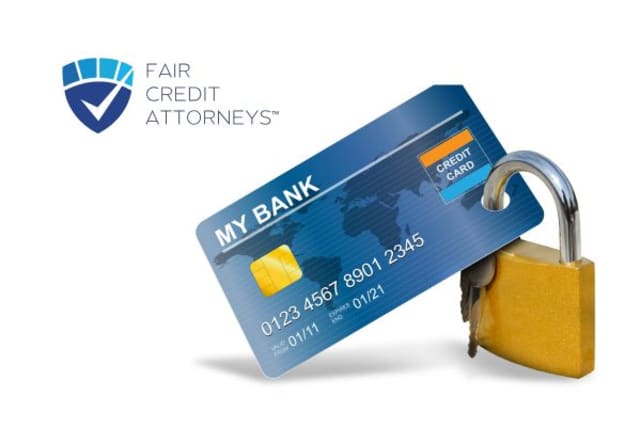Your credit report is more than a number; it’s a detailed snapshot of your financial life. Lenders, landlords, and sometimes even employers check it to understand how you manage money. Mistakes or fraud on your report can affect everything from your credit score to your interest rates and ability to secure loans. That’s why reviewing your credit report regularly is critical.
Our trusted team at Fair Credit Attorneys helps clients correct errors, safeguard their identity, and maintain strong credit health. Understanding your report is the first step toward financial confidence.
What is a credit report?
A credit report is a record maintained by credit bureaus or consumer reporting agencies that documents your credit accounts, payment history, and certain public records, like bankruptcy public records or civil judgments.

Its primary purposes include helping lenders determine:
- Your ability to repay personal loans, auto loans, or mortgages.
- Your eligibility for credit card accounts and financing options.
- Your interest rates based on your past loan paying history.
However, a credit report isn’t just for lenders; it’s also a tool to protect against identity theft and monitor for fraud detection.
Components of a credit report
When you look at your report, you’ll see several sections. Most of the time, they include:
Personal information: Your name, social security number, addresses, phone numbers, and other personal identifiable information. Errors here can lead to mixed files, where your report includes someone else’s data.
Credit accounts: This includes credit card accounts, personal loans, auto loans, and mortgages, along with collections accounts and any delinquent accounts.
Public records: Bankruptcy public records, civil suits, and tax liens may appear. These can impact your credit scores for years.
Credit inquiries: Both hard inquiries (from applying for new credit) and soft inquiries (checking your own credit scores) appear. Hard inquiries can temporarily lower your score, while soft inquiries do not.
Why reviewing your credit report matters
Taking the time to review your credit report regularly can save you trouble down the road. Even small credit report errors, like a misreported account balance or a late payment, can affect your credit health. By staying vigilant, you can:
- Spot inaccurate information or identity errors.
- Keep your credit utilization rate in check.
- Identify unusual activity indicators, which could mean identity theft.
- Prepare for upcoming credit applications and secure better interest rates.
If you notice errors or suspect fraud, Fair Credit Attorneys can guide you through the dispute process and help protect your credit health.
Examining personal information
Checking your personal information is one of the first steps. Make sure your name, addresses, social security number, and contact information are accurate. Mistakes in these details can result in a mixed file, where your credit report includes someone else’s accounts, which could unfairly lower your credit scores.
Evaluating credit accounts
Your report shows every type of credit you have used: credit card accounts, personal loans, auto loans, and mortgages. It also includes collections accounts and delinquent accounts.
Sometimes, accounts appear in error. You might see:
- Accounts you didn’t open (identity theft).
- Wrong account balances or credit utilization.
- Late payments or closed accounts reported incorrectly.
Pay attention to your payment history, as lenders and auto lenders rely on it heavily when assessing loan applications.

Understanding public records
Public records like bankruptcy public records, civil judgments, or tax liens can have long-lasting effects on your credit score. It’s essential to ensure these entries are accurate. Mistakes here can make it harder to secure loans or credit card accounts.
If you spot inaccuracies, contact the credit reporting agencies immediately. Correcting errors early can prevent higher interest rates or denied credit applications.
Assessing credit inquiries
Understanding the difference between hard and soft inquiries helps you protect your credit score.
- Hard inquiries happen when you apply for a new credit card, personal loan, or mortgage. Multiple hard inquiries in a short time can lower your credit score and raise interest rates.
- Soft inquiries happen when you check your own report or when lenders pre-approve you; they don’t affect your score.
Monitoring inquiries ensure no unauthorized credit applications occur without your knowledge.
Monitoring for discrepancies
Check your credit reports from all three major credit reporting agencies: Experian, Equifax, and TransUnion. Using the annual credit report request form, you can access your reports for free once a year.
When reviewing:
- Look for inaccurate information, identity errors, or suspicious credit inquiries.
- Use the dispute process through consumer dispute centers to correct mistakes.
- Keep tracking numbers for all disputes and follow up until they are resolved.
Learn More: Identity theft prevention tips
Recognizing signs of fraud
You should suspect fraud if you notice:
- Unknown credit card accounts or personal loans.
- Unexpected collections accounts or delinquent accounts.
- Alerts from credit monitoring services.
If fraud is suspected:
- Place a security freeze on your accounts.
- Contact credit bureaus and credit report companies.
- File reports with the FTC or local authorities.
- Consult Fair Credit Attorneys to ensure your rights are protected under the Fair Credit Reporting Act.

Understanding credit score factors
Your credit score is affected by multiple factors:
- Credit utilization: High balances on credit card accounts can lower your score.
- Payment history: Late payments on loans or credit card debt are damaging and can even lead to credit card denial when you apply for new credit.
- Credit inquiries: Multiple hard inquiries from credit applications may impact your score temporarily.
Maintaining low credit utilization and timely payments can help you secure better interest rates and financing for auto loans, personal loans, and mortgages.
Utilizing resources for monitoring
Free and paid resources help you stay on top of your credit health.
- Free credit reports: One report per year from each credit reporting agency.
- Credit monitoring services: Track credit accounts, collections accounts, and inquiry information.
- Consumer protections: The Fair Credit Reporting Act lets you dispute errors, request corrections, and monitor for identity theft.
Rights include disputing errors, requiring investigation within 30 days, and removing incorrect public records or collections accounts.
Safeguard Your Credit Today
Your credit report affects your financial opportunities and your personal security. Regular review, monitoring for fraud, and correcting errors can protect your credit health and ensure you get fair interest rates on loans and credit card accounts.
If you see inaccurate information or identity errors, don’t wait. Fair Credit Attorneys can guide you through disputes, help place fraud alerts, and protect your rights under the Fair Credit Reporting Act.
Protect your financial future today. Contact Fair Credit Attorneys to review your credit report, correct errors, and strengthen your credit health.



